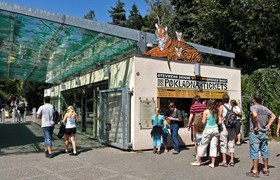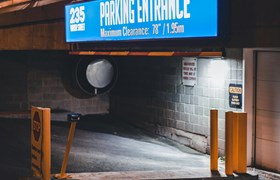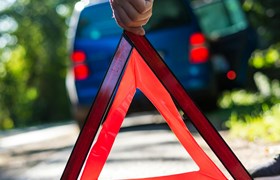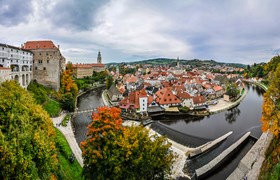Peculiarities of traffic rules in the Czech Republic
If you intend to visit the Czech Republic for business or tourism purposes, you will probably need a car to travel around the country. In this case, you need to know about some of the nuances of traffic rules that concern the rules, road signs, markings, etc. In this article, you will learn about the peculiarities of traffic rules in the Czech Republic that every driver in this country should know.
Markings in the Czech Republic: where is it forbidden to drive?
In the Czech Republic, there are special lanes that only public transport can use:
-
BUS - bus lane;
-
TRAM - tram zone;
-
TAXI - taxi lane.
Using these lanes for driving a car is prohibited on weekdays from 9 am to 6 pm (unless other times are indicated on the sign). Outside these time frames, you are allowed to use public transport lanes, provided that you do not interfere with the traffic of vehicles for which these lanes are intended.
What are the speed limits in the Czech Republic?
As in any other country, there are speed limit rules in the Czech Republic. In particular:
-
You cannot drive faster than 50 km/h in a city or other populated area.
-
The speed limit is up to 80 km/h on motorways that pass through a populated area.
-
The maximum speed limit on a road outside a populated area is 90 km/h.
-
When driving on a motorway, the limit is 130 km/h.
There is also an acceptable level of speeding in the Czech Republic. When driving at a speed of less than 100 km/h, the excess level is 3 km/h. For example, in the city, you can drive at a speed of no more than 53 km/h. Anything higher is an excess. If you drive on a road with a speed limit of over 100 km/h, the maximum permissible excess is 3%. For example, the maximum speed on a motorway outside a city will be 134 km/h.
What other special features are there for drivers in the Czech Republic?
All drivers should know about several important rules and features in the Czech Republic. For example:
-
There are no permissible limits for alcohol in the blood in the country. Breathalyzers work with a statistical error of 0.3 ppm. If the blood level is more than 0.3 ppm, the driver will face a fine of up to 20,000 CZK and deprivation of rights for up to 1 year.
-
Tinting. The Czech Republic's legislation defines a light transmittance level of 70% for the windshield and 75% for the side windows. If the tint exceeds this norm, the police will force you to remove it.
-
If you are driving with a child, a car seat is required. This accessory must be used for children under 12 years of age and up to 150 cm tall. If you do not do this, you will be fined up to 2,000 CZK. Our company provides child car seats for free, you can rent a car with a seat for a child of any age.
-
The car must stand out on the road with daytime running lights or low-beam headlights. They must be on regardless of the season, the place where you are driving, and the time of day. In conditions of limited visibility, you must use fog lights.
-
Parking in the Czech Republic is only possible in special zones. They are marked with appropriate signs. If you park in a place where parking is prohibited, you risk getting a fine. You can read about the peculiarities of parking in the Czech Republic in a separate article on our blog.
In addition, using a phone while driving is prohibited in the Czech Republic. If the police see you with a phone, you may also face a fine.
Popular Articles

Toll roads in the Czech Republic
Toll roads in the Czech Republic: what do you need to know? The practice of toll roads is not new to the European Union, but each country has its own rules and features, and the Czech Republic is no e

How to Get to Hluboka nad Vltavou Castle by Car?
How to Get to Hluboka nad Vltavou Castle by Car? Hluboka nad Vltavou Castle is one of the most beautiful castles in the Czech Republic. It is located near Ceske Budejovice and attracts tourists with i

How to Get to the Prague Zoo by Car?
How to Get to the Prague Zoo by Car? The Prague Zoo is one of the most interesting places in the city. It is located in the picturesque area of Troja and covers an extensive area. Traveling there by c















